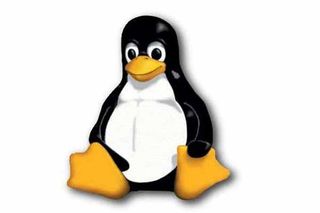Today in history: Linux turns 20
It's been 20 years since the open source operating system went public. We look back at how far it's come since the early days.

On this day 20 years ago, a young Finnish computer science student started to tell the outside world about a little tech project he was working on.
Linus Torvalds took to newsgroup Usenet to tell people about his quest to create a new operating system and ask others to give him feedback and help out.
Granted, the first version of Linux (0.01) wasn't released into the wild until September of that year, but nonetheless 25 August marked a significant milestone in its history. Torvalds actually started working on the OS in April 1991.
Interestingly, Torvalds' OS was just a hobby. He didn't plan on becoming famous or for his creation to be used the world over. But these things have happened nonetheless and now the Linux community is one of the strongest, innovation driven communities you'll find.
This is largely thanks to its open nature and the use of the GNU General Public Licence so the software can be used by anyone, shared by anyone, and modified by anyone (so long as you know what you're doing that is).
In 2003, Linux had a taste of the limelight again in the form of an IBM ad screened during the Superbowl. The first version of Linux sported just over 10,000 lines of code. Today, that figure has soared to 10s of millions.
Today, Linux is all around us. And its popularity doesn't show signs of stopping anytime soon. Take a look at the Linux Foundation's celebratory video.
Get the ITPro. daily newsletter
Receive our latest news, industry updates, featured resources and more. Sign up today to receive our FREE report on AI cyber crime & security - newly updated for 2024.
Maggie has been a journalist since 1999, starting her career as an editorial assistant on then-weekly magazine Computing, before working her way up to senior reporter level. In 2006, just weeks before ITPro was launched, Maggie joined Dennis Publishing as a reporter. Having worked her way up to editor of ITPro, she was appointed group editor of CloudPro and ITPro in April 2012. She became the editorial director and took responsibility for ChannelPro, in 2016.
Her areas of particular interest, aside from cloud, include management and C-level issues, the business value of technology, green and environmental issues and careers to name but a few.





